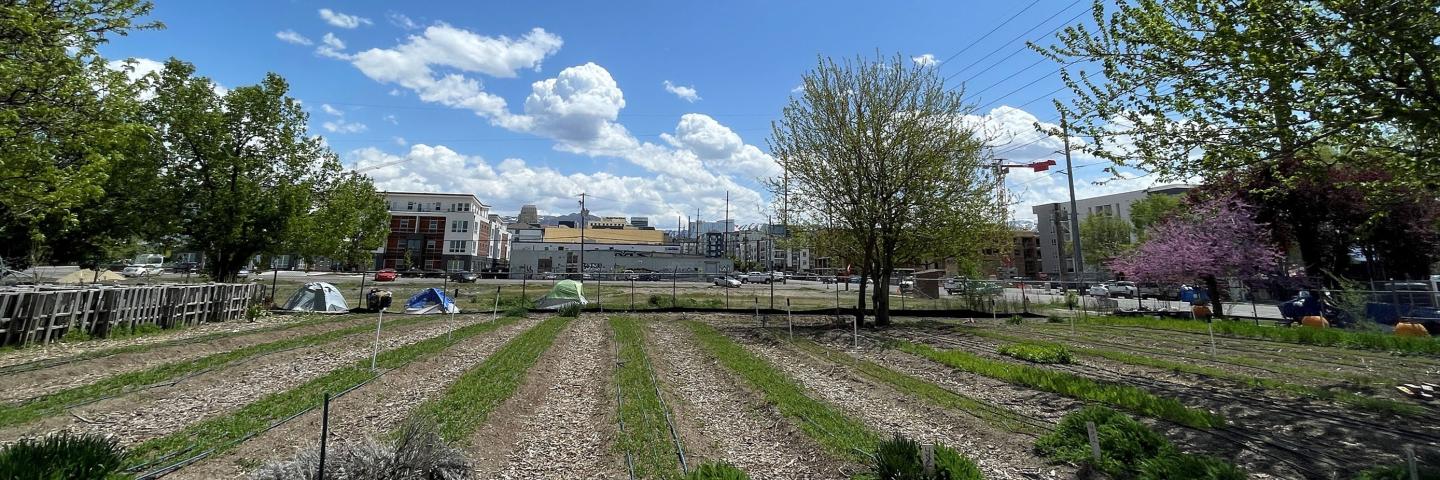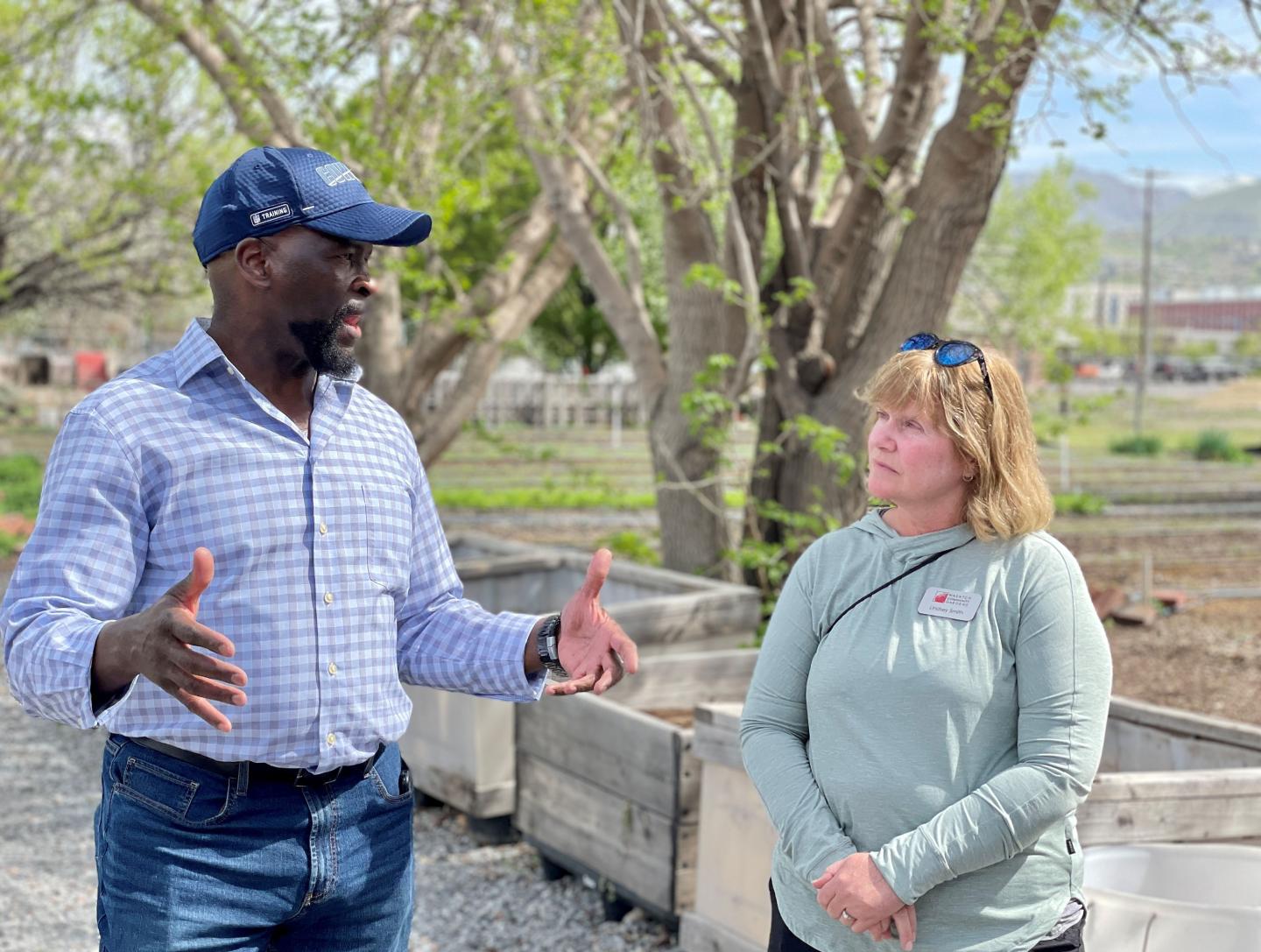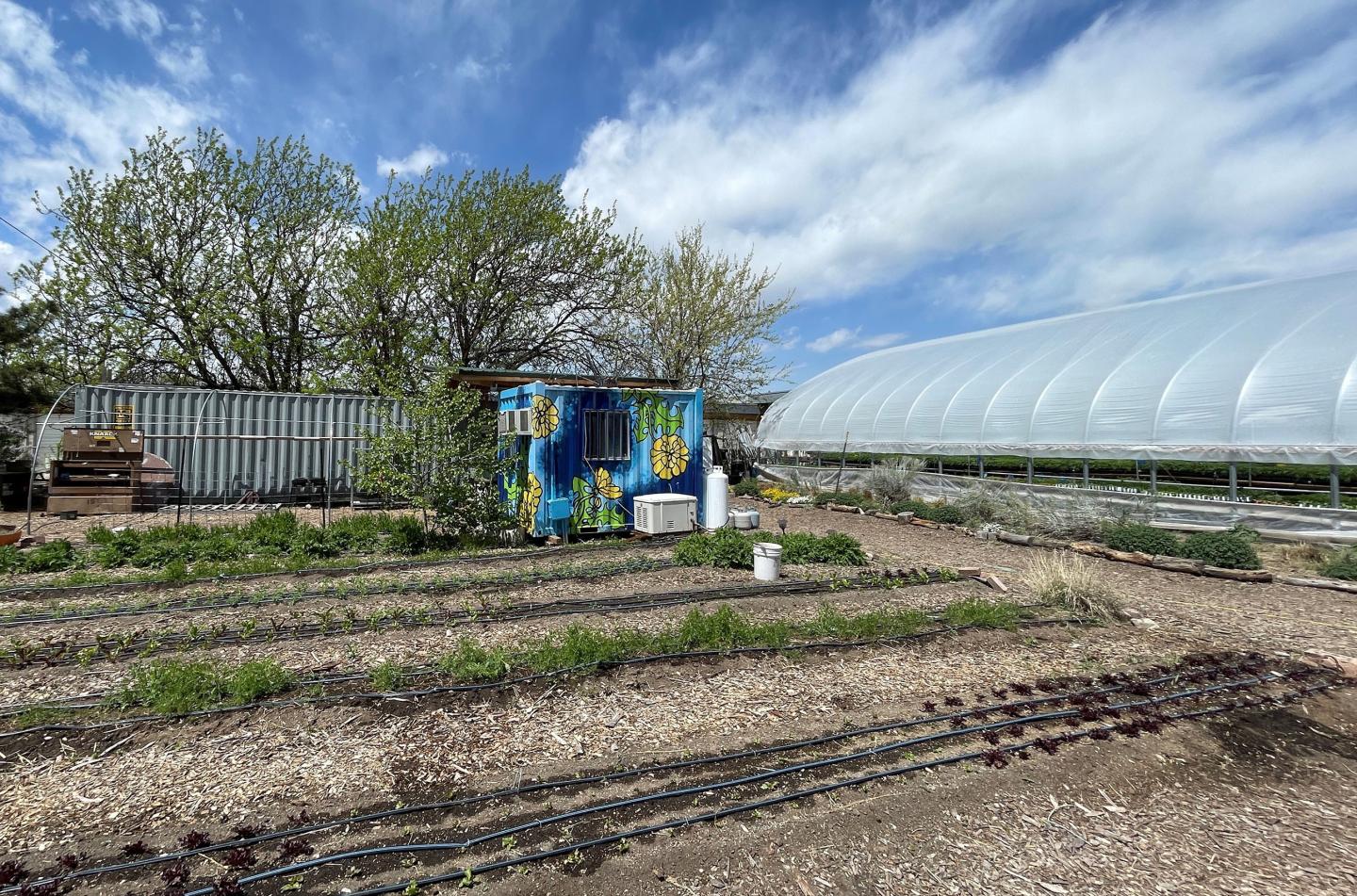Urban Agriculture Thrives as Utah Nonprofit Looks Ahead to Future Growth

Since 1989, Wasatch Community Gardens has grown to serve 11,000 individuals annually through 18 community gardens.
The 1.4 acres of Wasatch Community Gardens’ (WCG) Green Phoenix Farm sits nestled in the center of downtown Salt Lake City, surrounded by pavement on three sides and an abandoned lot. The lack of a conventional farmer next door is one reason the organically certified, 100% solar-powered farm has flourished in its urban space, acting as a demonstration site for regenerative agriculture and permaculture techniques.
More importantly, it has provided a place for participants in the farm’s job training program for women experiencing homelessness, and the area’s unsheltered community as a whole. “A comment I get a lot from folks just coming into the farm is that it feels different here,” shared James Loomis, Director of Agricultural Operations for the nonprofit, “I think just being somewhere safe, beautiful, productive, and feeling valued. It’s incredible to see the change in their demeanor.”

Since the farm’s start in 2016, nearly 60 women have graduated from the 10-month program. With the lease ending in 2023, the program will be temporarily transplanted to another location as WCG works with the city to find a new, permanent home for the farm. Loomis views the impending move as an opportunity to redesign and fine tune the program, leaving more room for educational signage, self-guided tours, and a renewed chance to support individuals and communities in need of more urban agricultural green spaces.

Started in 1989, the mission of WCG is to “Empower people to grow and eat healthy, organic, local food.” Annually more than 11,000 individuals are served by their 18 community gardens, educational programs, community events, and produce donations. A new headquarters and urban agriculture center opened in 2022 three miles East of Green Phoenix Farm features demonstration and teaching gardens, indoor teaching spaces, and commercial and outdoor kitchen spaces.
It also houses the historic Grateful Tomato Garden. Established in 1991, the garden had been part of a larger multi-generational property used as a small urban homestead. The owners allowed WCG to utilize it for the tomato garden until 1995, when they announced their plans to sell. With support from the owners, the nonprofit and surrounding community was able to raise $65,000 to save the garden. WCG later acquired a conservation easement in 2016 to permanently protect the land for agricultural use. “It’s amazing to think how far it’s come,” said Executive Director Georgina Griffith-Yates of the campus. “Starting from this single community garden serving the immigrant community in this neighborhood to now, it's just exciting to think about where we go next."
WCG recently applied for an Urban Agriculture and Innovative Production Grant. Loomis sees endless opportunity in the vacant parcels dotting the urban landscape. In reflecting on the work accomplished at their Green Phoenix Farm location, and the connections made with people from the surrounding unsheltered community, he hopes to grow program outreach when the farm finds its next permanent home.


